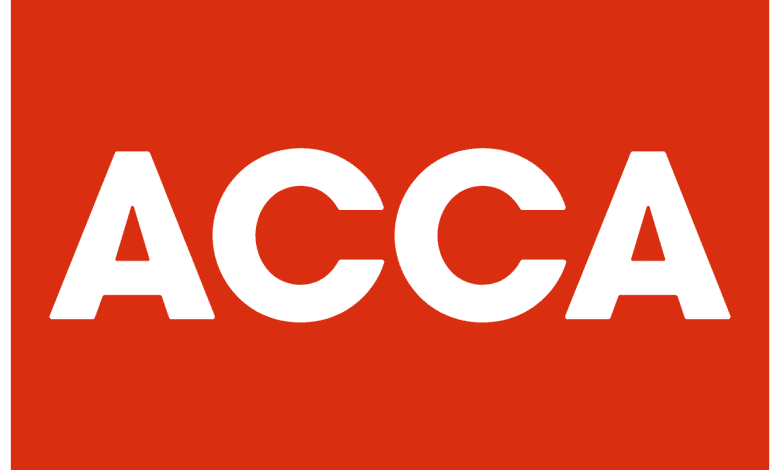How is ACCA as a Career Option? A Comprehensive Guide

In the dynamic and competitive world of finance and accounting, the Association of Chartered Certified Accountants (ACCA) has emerged as one of the most sought-after qualifications. With its global recognition and industry relevance, ACCA opens doors to a rewarding and diverse career in finance, accounting, and business. This article delves into the merits of pursuing ACCA as a career option, its benefits, job prospects, and an overview of the ACCA course fees.
Understanding ACCA
The Association of Chartered Certified Accountants (ACCA) is a prestigious international professional accountancy body that provides a comprehensive qualification for finance professionals worldwide. Founded in 1904, ACCA has since become a globally recognized and respected qualification, offering its members the opportunity to work in various sectors and industries.
The Importance of ACCA in the Finance Industry
ACCA offers numerous advantages to aspiring finance professionals, making it an attractive career option:
a. Global Recognition
One of the key advantages of ACCA is its global recognition. ACCA members are highly sought-after in both developed and emerging economies, giving them the flexibility to work anywhere in the world.
b. Comprehensive Skill Set
The ACCA qualification is designed to equip students with a diverse skill set, combining technical accounting knowledge with essential business skills. This holistic approach ensures that ACCA professionals are well-rounded and capable of handling complex financial challenges.
c. Career Versatility
ACCA opens doors to a wide range of career opportunities in various sectors such as auditing, taxation, financial consulting, and management accounting. This versatility allows ACCA professionals to explore their interests and find a niche that aligns with their career aspirations.
d. Continuous Professional Development
ACCA prioritizes continuous professional development (CPD), requiring its members to maintain and update their skills throughout their careers. This commitment to lifelong learning ensures that ACCA professionals stay relevant and up-to-date in an ever-evolving financial landscape.
Job Prospects with ACCA
ACCA qualified professionals enjoy promising career prospects across different sectors:
a. Accountancy Firms
Many ACCA members find employment in accountancy firms, where they work on audits, financial reporting, and advisory services for clients ranging from multinational corporations to small businesses.
b. Corporate Sector
In the corporate world, ACCA professionals often serve as financial analysts, management accountants, financial controllers, or even Chief Financial Officers (CFOs) of companies.
c. Public Sector and Government
ACCA-qualified individuals can also find rewarding careers in the public sector and government entities, managing public funds, financial planning, and reporting.
d. Non-Profit Organizations
Non-profit organizations often require finance professionals to manage their finances effectively, making ACCA graduates valuable assets in this sector.
e. Self-Employment and Entrepreneurship
With ACCA’s in-depth knowledge of financial management and business, some professionals choose to start their own ventures or work as freelance consultants, providing financial advice and services to clients.
ACCA Course Structure and Curriculum
The ACCA qualification comprises three levels: Knowledge, Skills, and Professional. Each level covers essential topics in accounting, finance, and business:
a. Knowledge Level
The Knowledge level lays the foundation, covering subjects like Financial Accounting, Management Accounting, and Business Law. These modules ensure students grasp fundamental accounting principles.
b. Skills Level
The Skills level builds on the foundation, introducing more complex topics such as Taxation, Financial Reporting, and Audit and Assurance. Students develop their analytical and problem-solving skills during this stage.
c. Professional Level
The Professional level includes the Strategic Professional module, which focuses on advanced accounting and finance topics, as well as essential skills like Leadership and Ethics. Students also choose two optional subjects based on their career interests.
ACCA Course Fees
The cost of pursuing the ACCA qualification varies depending on several factors, including the country of study, mode of learning, and additional support materials. While specific fees are subject to change, below is a general overview of the typical costs associated with ACCA:
a. Registration Fees
Upon enrolling with ACCA, students are required to pay a one-time registration fee. This fee is usually around $150 to $200.
b. Subscription Fees
ACCA charges an annual subscription fee, which allows students to access course materials, online resources, and support services. The subscription fee ranges from $150 to $250 per year.
c. Tuition Fees
Tuition fees can vary significantly depending on the learning provider, whether it is an online course, a traditional classroom setting, or a self-study program. On average, tuition fees for the entire ACCA qualification can range from $3,000 to $10,000.
d. Study Materials
Study materials, such as textbooks, revision kits, and online resources, are essential for exam preparation. The cost of study materials typically ranges from $300 to $800 for the entire ACCA course.
e. Examination Fees
ACCA charges examination fees for each paper or module attempted. The examination fees range from $100 to $400 per paper, depending on the level and country of examination.
f. Additional Costs
Additional costs may include membership application fees (after completing the exams) and resit fees, if a student needs to retake an exam.
Financial Support and Scholarships for ACCA
The pursuit of an ACCA qualification may be financially challenging for some aspiring professionals. However, various financial support options and scholarships can help alleviate the burden of ACCA course fees:
a. Tuition Provider Scholarships
Many ACCA tuition providers offer scholarships or financial aid to outstanding students. These scholarships are often merit-based and can cover a portion of the tuition fees or provide study materials at a reduced cost.
b. Employer Sponsorship
In some cases, employers recognize the value of having ACCA-qualified employees and may be willing to sponsor their staff’s ACCA studies. This sponsorship can include covering registration fees, examination fees, and even providing study leave.
c. ACCA Bursaries
ACCA occasionally offers bursaries to support students with financial constraints. These bursaries are typically awarded based on the applicant’s financial need and academic performance.
d. Student Loans and Financial Assistance
Financial institutions in certain countries may provide student loans or financial assistance to individuals pursuing professional qualifications like ACCA. These loans can offer favorable repayment terms, making it easier for students to fund their studies.
e. Self-Funding and Part-time Study
While full-time study may not be feasible for everyone, ACCA allows students to pursue the qualification through part-time study, enabling them to work while completing their exams and spreading the financial burden over a more extended period.
Conclusion
ACCA offers a rewarding and promising career option for individuals aspiring to excel in the fields of finance, accounting, and business. Its global recognition, comprehensive curriculum, and diverse career prospects make it a highly sought-after qualification in the finance industry. While the ACCA course fees can be a significant investment, the long-term benefits of the qualification often outweigh the costs, making it a wise career choice for those passionate about finance and accounting. Whether working in accountancy firms, the corporate sector, public institutions, or pursuing entrepreneurial ventures, ACCA professionals have the knowledge and skills to thrive in a competitive business world.






